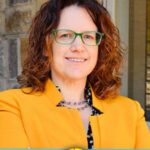
Human connection is an integral part of survival and a vital way people connect as humans is through sex. Sex is a natural, healthy, and enjoyable part of life. But, for people with sexual addiction, repetitive sexual urges or thoughts are unhealthy and intrusive — to the point that they can negatively impact the person’s ability to live their lives.
Sexual addiction is when someone is so preoccupied with seeking, observing, or engaging in sexual urges or fantasies that they can’t control their thoughts and behaviors. Sexual addiction harms relationships and makes sex so all-consuming that functioning in day-to-day life becomes challenging.
Mental health professionals estimate that 3-6% of the population has symptoms of sex addiction. It is also becoming more common because the internet makes it easier to access pornography and sex partners.
What Causes Sexual Addiction?
Sex addiction may be a symptom of a more significant untreated issue. Like other forms of addiction, sexual addiction triggers the brain’s reward pathway and can drive someone to seek that same release repeatedly. The desire to feel better is why someone with a traumatic past or who suffers from mental health issues may be easily susceptible to addictive behaviors such as sexual addiction.
- Trauma – Experiencing past emotional or physical trauma can contribute to sex addiction, especially if the trauma occurred in childhood. More than 70% of people with sex addictions have a history of childhood physical abuse. People who grew up with parents with addictions are also more likely to experience sex addiction as adults.
- The Brain – The brain’s natural reward pathway reinforces sexual activity. A healthy sexual encounter ignites the release of dopamine, also known as the brain’s “feel-good” chemical. These positive sensations make you want to repeat the behavior that creates the positive sensations, and a cycle begins. For those addicted to sex, this dopamine release after a sexual experience resembles the euphoric rush of a chemical high, making it difficult to resist repeating that behavior. Over time, the person’s brain becomes accustomed to the rush, and the person has to increase the intensity of the dopamine release-seeking behavior. Thus, an addiction is born.
- Co-occurring Disorders – Sex addiction is part of a cluster of psychiatric conditions characterized by compulsive, uncontrollable behavior. This diagnosis is more often the case for those with a dual diagnosis or a co-occurring disorder. One study found that more than 70% of respondents with a sex addiction also had a mood disorder like depression. The same study found that 40% of respondents with a sex addiction also had a substance use disorder. People with sexual addiction may use drugs and/or alcohol to release inhibitions or cope with feelings of guilt or shame. However, because substance use impairs judgment, it also increases the risk of engaging in risky behavior that places one in danger.
Symptoms of Sexual Addiction
There are many symptoms of sexual addiction, and they vary depending on the person. The variation is because people with sexual addictions fulfill their needs with different activities like compulsive masturbation, multiple sexual partners, or excessive pornography viewing.
Despite the variation, people with sex addictions have some of the same or similar symptoms. Common symptoms of sexual addiction include:
- Experiencing intense sexual urges that can’t be controlled or stopped
- Feeling guilt or shame after engaging in sexual behaviors
- Using sex or sex-related behaviors to cope with depression or anxiety
- Engaging in risky sexual practices regardless of possible negative consequences (i.e., sexually transmitted diseases as the result of unprotected sex with multiple partners)
- Finding it difficult to maintain relationships
Effects of Sexual Addiction on Life
The effects of sexual addiction on everyday life and the lives of those you care about may be severe. These effects include:
- Health Dangers – Sex addiction may lead to having unprotected sex with multiple partners. Unprotected sex can result in sexually transmitted diseases like hepatitis, chlamydia, and human papillomavirus (HPV), becoming cancerous if left untreated.
- Occupational Risks – Sex addiction may result in job loss or instability because of an inability to focus on work, complete necessary tasks, or to engage in sexual activities while at work.
- Loss of Trust – Sex addiction often results in dishonesty and secrecy, undermining relationships and destroying trust.
- Legal Consequences – Some illicit sexual activities are subject to legal consequences, including arrest and possible jail time if caught.
- Financial Concerns – Sex addiction may burden you or your family with debt because of the need to pay for pornography or sex. There is also a possible loss of income due to inappropriate behavior in the workplace.
- Substance Use Issues – People may use alcohol or drugs to numb feelings of guilt and shame that often accompany sex addiction.
- Other Mental Health Concerns – People with sex addiction may develop other mental health issues like depression or anxiety because they’re overwhelmed with their inability to control their urges.
Being Evaluated for Sex Addiction
Help is available for sexual addiction. Before a person is diagnosed with sex addiction, a mental health professional or physician will ask questions about:
- Physical and mental health, current and past
- Frequency and duration of any sexual thoughts and behaviors
- If there have been any attempts to control the sexual thoughts and behaviors
- The health of relationships with friends and family
- Any problems caused by the sexual behavior
- Past traumatic experiences
This questioning may include a complete psychological evaluation as the professional works to understand the client’s current emotional state and mental health history.
Once diagnosed, the next step would be to work with a counselor, therapist, or doctor to determine the right treatment plan. Treatment for sexual addiction can be emotional work and will take time.
Seeking Help for Sexual Addiction
There is no one-size-fits-all treatment for sexual addiction. The most effective treatment plan depends on the one doing the work. Treatment will consist of uncovering and treating a possible cause/causes of the addiction while teaching techniques to helo manage urges and behaviors while still maintaining a healthy sex life.
There are various treatment modalities for sex addiction, such as traditional talk therapy, medication, and self-help groups.
- Inpatient Treatment Programs – Many inpatient treatment centers have great success in treating sexual addictions. They offer a change in location and environment as a part of the recovery process. They also typically provide individual and group therapy sessions, healthy eating options, and physical exercise. Inpatient treatment programs are a good option for people with sexual addiction because being removed from your regular life for 30 days can help you regain control of your impulses and begin healing.
- 12-Step Programs – Another popular treatment option for someone with sexual addiction is a program like Sex Addicts Anonymous. It operates on the 12 Steps of Alcoholics Anonymous to offer a spiritual solution to addiction through group meetings and fellowship with other sex addicts. The steps are a series of exercises for healing and basic principles for living with addiction. Members of these programs aren’t required to give up sex but are encouraged to refrain from destructive sexual behaviors. A critical component or strength of 12-Step Programs is the community of others who struggle with sex addiction. This community promotes connection, and that connection can promote safety, eliminate loneliness and enhance a sense of belonging and support.
- Cognitive Behavioral Therapy – Cognitive Behavioral Therapy is a form of talk therapy. A licensed mental health professional supports the client in identifying trauma, triggers, biases, fears, and hopes to promote a change in thinking, which can then change behaviors.
- Medication – Doctors may prescribe antidepressants for those diagnosed with sex addictions to help control sexual urges and manage symptoms of depression and anxiety. When combined with therapy, these medications effectively reduce or even eliminate an addict’s cravings.
All Counseling can help you find a professional counselor to talk to if you think sex addiction might be a problem for you or someone you love. Use our therapist directory to find a therapist in your area who best fits your needs.
Citations & References:
Sex Addiction: Symptoms, Treatment, and Outlook. [online]
https://www.healthline.com/health/addiction/sex [Accessed 3 May 2021]
Sex Addiction Treatment Program [online]
https://integrativelifecenter.com/therapy/sex-addiction-treatment/ [Accessed 3 May 2021]
Kor, A., Fogel, Y., Reid, R. C., & Potenza, M. N. (2013)
Should Hypersexual Disorder be Classified as an Addiction?
Sexual addiction & compulsivity, 20(1-2), 10.1080/10720162.2013.768132
https://doi.org/10.1080/10720162.2013.768132
Compulsive sexual behavior – Diagnosis and treatment [online]
https://www.mayoclinic.org/diseases-conditions/compulsive-sexual-behavior/diagnosis-treatment/drc-20360453 [Accessed 3 May 2021].
Compulsive sexual behavior (Sexual addiction): What to know. [online]
https://www.medicalnewstoday.com/articles/182473 [Accessed 3 May 2021]
Sex Addicts Anonymous [online]
https://saa-recovery.org/ [Accessed 3 May 2021]
Find a Sex Addiction Therapist and Start Your Recovery


Brandon M Chatfield
Phoenix
Arizona

Cody McCall
Seattle
Washington

Joan Krakowiak
Hilo
Hawaii





Howard S Cohn
New York
New York


Charles Edward Glenn
Long Beach
California


Keisha Smith
Philadelphia
Pennsylvania

